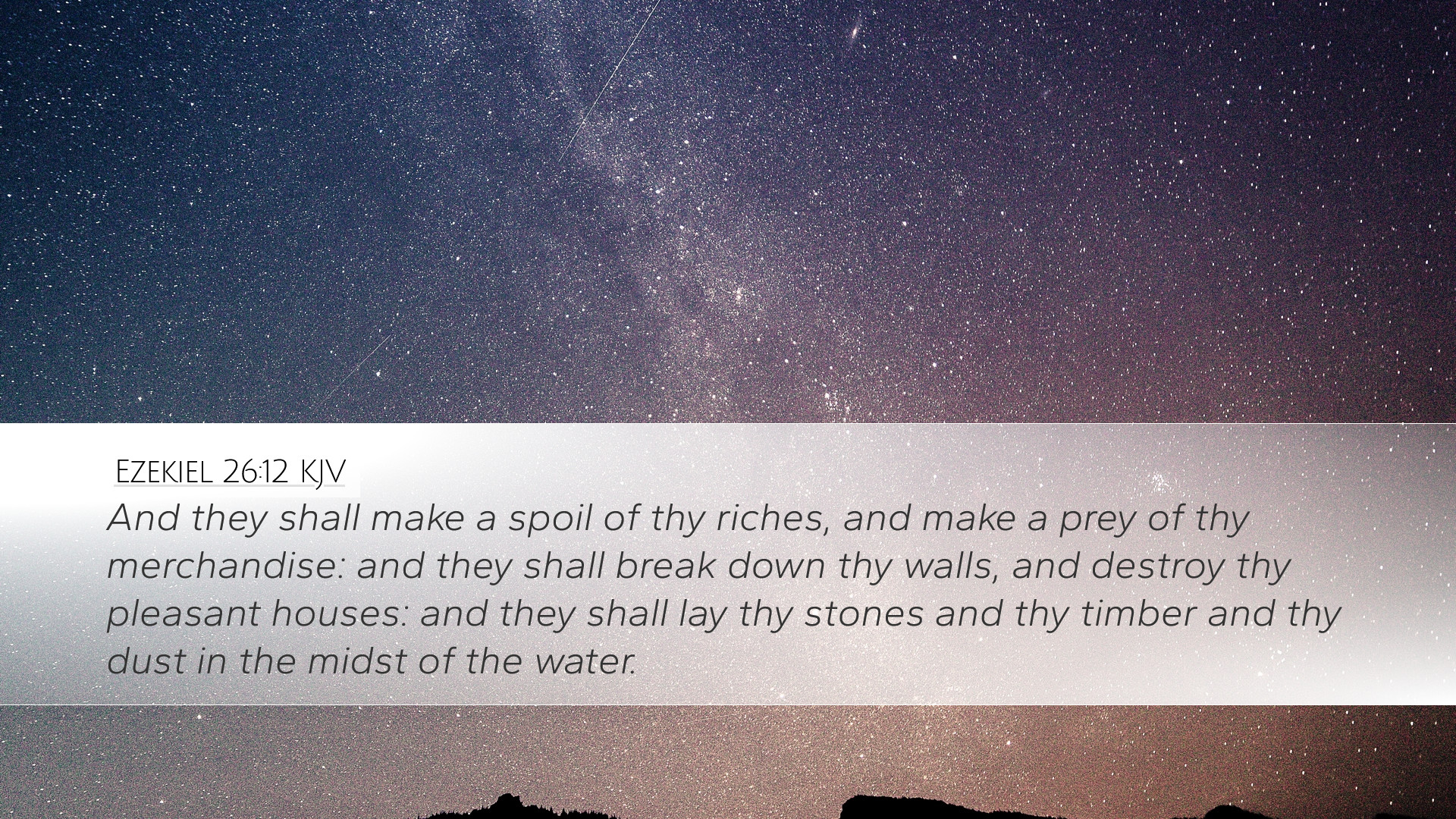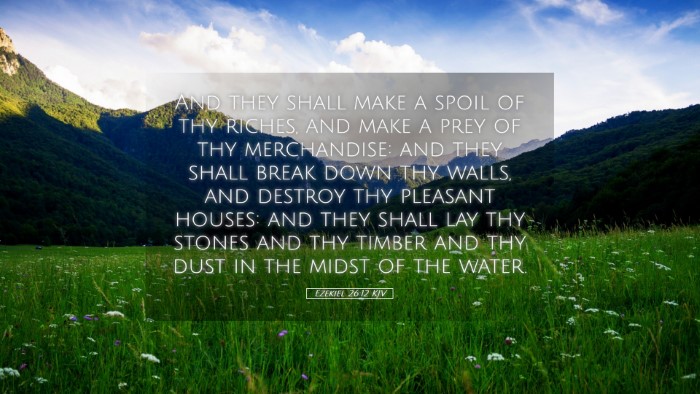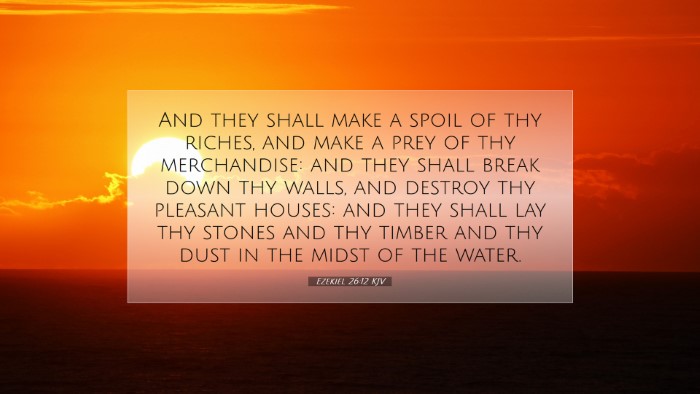Ezekiel 26:12 - Commentary and Insights
Ezekiel 26:12 states: "And they shall make a spoil of thy riches, and make a prey of thy merchandise: and they shall break down thy walls, and destroy thy pleasant houses: and they shall lay thy stones and thy timber and thy dust in the midst of the water."
Contextual Background
This verse falls within a prophetic oracle against the city of Tyre, a significant port city known for its wealth and prosperity. Historically, Tyre faced various sieges and destructions, but the prophecies of Ezekiel emphasize not only the physical downfall of the city but also divine judgment for its arrogance and opposition to God’s people.
Insights from Commentaries
Matthew Henry’s Commentary
Matthew Henry highlights the comprehensive destruction that Tyre would face, aligning it with God’s judgment. He interprets the spoiling of riches as a symbolic act reflecting God’s sovereignty:
- Divine Retribution: Henry points out that the destruction described was not merely a military conquest but a divine act of judgment against the idolatrous practices and pride of Tyre.
- Loss of Security: The breaking down of walls signifies the loss of security and the vulnerability of those who defy God. Tyre’s confidence in its defenses is shattered, analogous to spiritual arrogance facing divine judgment.
- Inescapable Fate: The imagery of laying stones and timber in the water suggests an irreversible fate; all that was once stable and prosperous will be submerged in chaos, representing both physical and moral degradation.
Albert Barnes’ Commentary
Albert Barnes elaborates on the specifics of the verse and its implications:
- Evident Wealth: Barnes emphasizes the wealth of Tyre, illustrating how it will become a target for invaders, reflecting the principle that often prosperity invites envy and greed.
- Destruction of Commerce: The term "prey" implies the targeting of Tyre’s economic structures. The loss of merchandise emphasizes the profound impact of divine judgment on trade and commerce, crucial elements to Tyre's identity.
- Symbolism of Water: He notes that placing the remnants in the water symbolizes a return to the chaos from which Tyre emerged, thereby highlighting the theme of restoration and destruction in biblical prophecy.
Adam Clarke’s Commentary
Adam Clarke brings a nuanced understanding to the text:
- Prophetic Fulfillment: Clarke analyzes the prophecy's fulfillment during Alexander the Great's siege of Tyre, viewing it as a significant historical event confirming God’s words through Ezekiel.
- Symbols of Judgment: He elaborates on each physical element, with stones and timber signifying broken futures, prosperity turned to ruins, and moral decay manifesting through the literal destruction of the city's beauty.
- Lessons for the Present: Clarke draws a parallel for modern congregants, reminding readers that such judgments are not only historical but serve as warnings for societies that drift away from divine principles.
Theological Implications
The theological implications of Ezekiel 26:12 are profound and layered, resonating throughout Christian doctrine:
- Justice of God: The judgment rendered against Tyre reflects God’s justice in response to societal sins, reinforcing the belief that no nation, however powerful, escapes divine accountability.
- Provision and Protection: The destruction of Tyre serves as a reminder that ultimate safety and provision come from God alone, not from material wealth or fortified defenses.
- Hope Amid Judgment: While a stern warning, the passage also presents hope; it reminds believers that God can restore what has been lost, emphasizing His sovereignty over history.
Practical Applications
Pastors and scholars can derive several practical applications from this verse:
- Encouragement to Humility: A reminder for both individuals and communities to remain humble before God, acknowledging that pride and self-sufficiency can lead to downfall.
- Call to Accountability: This passage encourages congregations to examine their actions and the state of their communities in light of biblical standards, prompting a call for repentance where necessary.
- Trust in Divine Justice: This scripture offers reassurance that God will ultimately address injustice, motivating believers to trust in His perfect timing rather than resorting to human mechanisms for vindication.
Conclusion
Ezekiel 26:12 is a reminder of God’s power and the consequences of collective sin. The prophetic utterance serves as both a historical account and a timeless warning to believers today. By studying such passages deeply, scholars, pastors, and theologians are equipped to convey God’s truths to contemporary audiences, offering guidance, caution, and hope.


